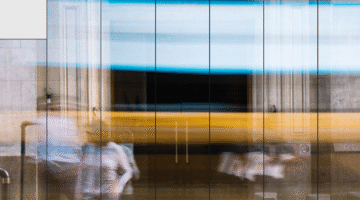 Justice Biff Tannen has announced his clerks for the current Supreme Court term. Predictably, and in keeping with his creepy practice, Kavanaugh has surrounded himself with women law clerks. Hiding behind conservative women to combat the perception that you are a sexual predator is peak 2018.
Justice Biff Tannen has announced his clerks for the current Supreme Court term. Predictably, and in keeping with his creepy practice, Kavanaugh has surrounded himself with women law clerks. Hiding behind conservative women to combat the perception that you are a sexual predator is peak 2018.
The women who agreed to work for Kavanaugh are of course complicit in the white male supremacy Kavanaugh now represents. Any one of them could publicly turn down their job offer and make it that much harder for Kavanaugh to pretend that his behavior is “normal” or acceptable.
But that’s a big ask. A Supreme Court clerkship is the most important résumé builder in the legal profession. These women have worked tirelessly for this opportunity. It’s hard to expect them to sacrifice their opportunity, when the system has already decided that the protestations of women cannot stop a privileged man from getting what he wants.

5 Tips For Proving Your Legal Department’s Value
Join our expert panel on March 3rd at 1pm ET to explore actionable, emerging ways you can gather and proactively share the data that demonstrates the impact of your work.
The sad reality is that these women have likely had to put up with a lot more than Justice Dilly Dilly to even get into a position to be a Supreme Court clerk in the first place.
On Slate, Dahlia Lithwick and Susan Matthews shed some sunlight on the Yale Law clerkship process, and boy does it need some disinfectant. The story really focuses in on the allegations against Yale Law Professor Jed Rubenfeld, and his wife and (former) Yale Law clerkship committee member Amy Chua. But beyond the specific alleged seediness of those two, the entire Yale Law process puts women in the position of having to fend for themselves against the perversions of powerful professors and the feeder judges they are connected to. From Slate:
A Supreme Court clerkship is an all-but-certain pathway to the upper echelons of power. It vaults former clerks into the best, highest-paying jobs at the finest law firms, and it opens doors to the most prestigious academic institutions. Neil Gorsuch, Elena Kagan, and John Roberts all clerked at the court on which they sit today. Brett Kavanaugh, a Yale Law School alum, clerked for Justice Anthony Kennedy. While law students are sold on the idea that the few dozen clerks who apprentice at the Supreme Court each year are bar none the smartest and most meritorious young lawyers alive, the children of sitting justices and prominent appellate judges somehow end up in that select group every year. Among the recent crop of Supreme Court clerks is a Kozinski, an Alito clerked for Kavanaugh, and Rubenfeld and Chua’s daughter, a current Yale law student, has signed on to clerk for Kavanaugh wherever he ends up.* And it’s not just Supreme Court clerkships that students covet. Clerkships with so-called feeder judges—the federal appellate judges (almost all white men) who routinely place their law clerks on the high court—are also highly competitive…
For students who don’t arrive at Yale with fancy last names, getting a position working for a federal judge can be as much about networking as it is about academic performance. “A clerkship … isn’t something you apply to as much as it’s something that happens to you,” one student told us. Clerkships are brokered through relationships, with influential professors holding enormous sway over the process due to their access to both the Supreme Court justices and the “feeder” judges. At Yale, students’ reliance on faculty relationships and recommendations is exacerbated by the school’s policy of not giving grades to first-year students. The first semester is graded as pass/fail, while the second is pass, fail, or honors. (This is also the case at Harvard and Stanford, but most other law schools assign grades.) While this grade-free ethos is supposed to decrease pressure on new students, the reality is that it leaves judges with a limited academic record with which to assess prospective candidates, so they have to depend even more heavily on faculty recommendations. This means students work hard to curry favor with the handful of faculty known to be influential in the clerkship process. Chua is one of those professors.
We now live in a world where over 20 percent of the Supreme Court clerkships are controlled by men who have been accused of being sexual predators. Both of those men are products of Yale Law School, which just so happens to be the most important clerkship factory in the country. If you are a Yale Law conservative, your options for clerking for an honorable justice are severely limited. I’d feel sorry for you if I didn’t already know that most of you are willing to overlook the allegations against Kavanaugh, just as you have overlooked Clarence Thomas for decades.

7 Key Trends In Law Firm Rate Negotiations
And how to navigate them in 2026.
Whatever changes Yale — or any other law school — might want to make to its clerkship process are limited by what mostly white male federal judges will accept. If they want to hire the children of their friends, or the students recommended by creepy law professors, there’s no way to really stop them. Women in all fields put up with sexual harassment of all kinds to advance in their careers — top law students are not immune and are not put in a position to stop the entire patriarchy. As long as we install sexual predators in positions of power, this will be the reality.
Bart O’Kavanaugh is now in a position of unaccountable power. Every year he is on the Court, he will have the power to make the careers of a few law students. Yale Law School will dutifully pimp out its students to his chambers, providing him a steady diet of men and women enablers. Those enablers will rise up to positions of power, and having made their own decision to support white male supremacy at whatever personal and ethical cost, they will become part of the structure that allows such domination to continue.
There are very few opportunities to interrupt the wheel of power advanced by Justice Indelible Laughter and his fraternity members at Yale Law and elsewhere. Such an opportunity was wasted last week. How many years until we get another one?
Investigation at Yale Law School [Slate]